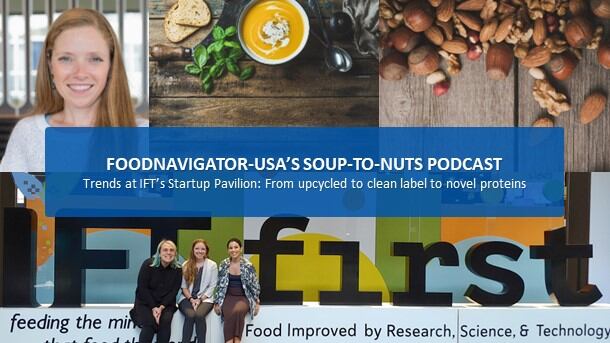Food companies seeking relief from the volatile price and the cyclical supply squeeze of eggs could soon have another replacement option for use in baked goods, confections, plant-based meat and more following FDA’s acknowledgement this week of the safety of food-tech company Onego Bio’s bio-identical egg white protein Bioalbumen.
The Finnish-US company announced yesterday that FDA issued a ‘no questions’ letter for its determination that Bioalbumen is Generally Recognized As Safe (GRAS) when used as a source of protein and foaming, gelling and as a binding agent in products ranging from baked goods, breakfast cereals and pasta to beverages like eggnog and alcoholic egg white cocktails to ice cream, frozen yogurt, pudding and other desserts.
While the letter is not yet posted on FDA’s website, the agency confirmed in response to GRAS Notice No. GRN 1249 that maximum levels from 3 to 35 grams of ovalbumin per 100 grams can be used.
Companies currently are not required to notify FDA when they self-determine a new ingredient as GRAS – a controversial point prompting HHS Secretary Robert F Kennedy, lawmakers and consumer advocates to push for regulatory reform to close what they see as a “loophole” that threatens public safety.
But Onego Bio, like many ingredient companies, opted to go the extra step and seek FDA review of its GRAS dossier because “integrity and transparency are at the heart of everything we do,” company CEO and Co-founder Maija Itkonen said in a statement.
“FDA’s conclusions now confirm outright to commercialize and gives customers full confidence in incorporating Bioalbumen as a reliable food solution,” she added.
A letter of no objection from FDA also streamlines regulatory approval in other countries and reassures potential clients of the ingredient’s safety, she added.
What is Bioalbumen?
The company claims that Bioalbumen is the first non-animal egg protein with an amino acid sequence identical to that found in chicken egg whites with equivalent taste, nutrition and functionality.
As a highly concentrated powder that packs the equivalent of 277 egg whites into one kilogram, Bioalbumen can be easily integrated into products and is label-friendly as it can be listed simply as non-animal egg white protein, according to the company.
The ingredient is made via precision fermentation using the filamentous fungus Trichoderma reesei that was discovered during World War II and has been used extensively in the enzyme industry.
The result is a protein with a protein digestibility-corrected amino acid score (PDCAAS) score of 1.0 - or 100% - and a whopping 90 grams of protein per 100 grams. Proteins that have the highest possible PDCAAS score of 1.0 often are considered higher quality. Other examples of proteins with a PDCAAS score of 1.0 are eggs, soy and cow milk.
Onego Bio prepares for production at scale
In anticipation of FDA’s greenlight for the safe use of Bioalbumen across platforms, Onego Bio recently acquired a 25.9 acre innovation campus in Wisconsin at which to produce its flagship egg protein at an output equivalent to 6 million laying hens, according to the company.
Onego Bio expects the facility to come online in 2028, at which point it will be able to produce 2 million liters of fermentation capacity per full-scale manufacturing unit.
The company was able to achieve both milestones thanks in part to a $15.2 million fundraise from the European Innovation Council in July 2024 and a $40 million Series A fundraise in the previous April.




